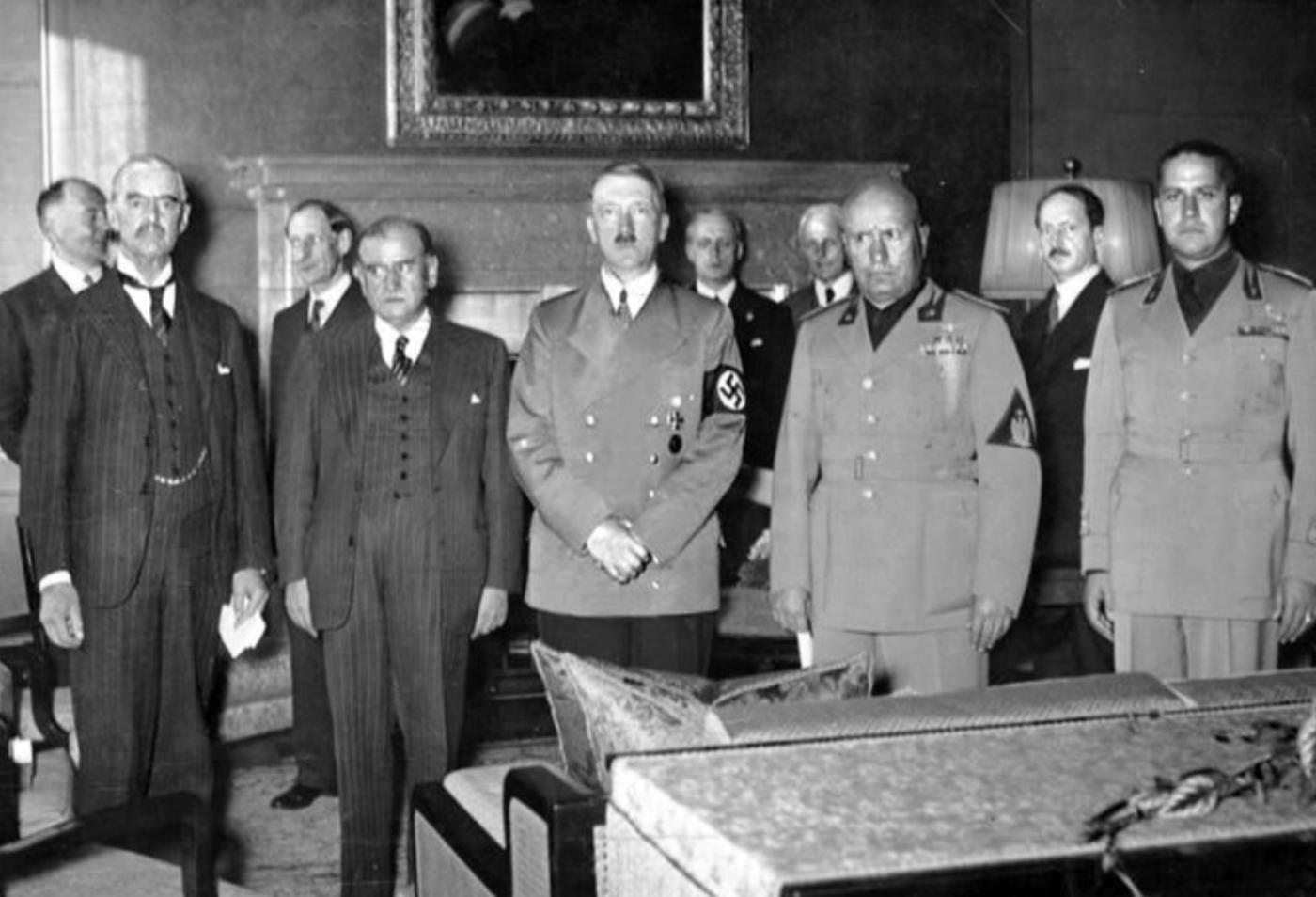
On this day in military history…
The Munich Agreement, often referred to as the Munich Betrayal, stands as one of the most controversial diplomatic events leading up to the Second World War. Signed on September 30, 1938, this agreement was a failed attempt by European powers to avoid war by conceding to Adolf Hitler's territorial demands. It involved the leaders of four major European nations: British Prime Minister Neville Chamberlain, French Premier Édouard Daladier, Italian dictator Benito Mussolini, and German Chancellor Adolf Hitler. Notably absent from the discussions were representatives from Czechoslovakia, the very country whose territory was being negotiated, and the Soviet Union, which had its own interest in the region’s fate.
The crux of the agreement centered on the Sudetenland, a region of Czechoslovakia with a significant ethnic German population. Hitler had been agitating for its annexation under the pretext of protecting the rights of the German-speaking minority. In reality, the move was part of his broader plan to expand Germany's territory and undo the post-World War I settlement established by the Treaty of Versailles. The Sudetenland was also of immense strategic value, home to the bulk of Czechoslovakia's border defenses and military infrastructure.
As tensions escalated in Europe throughout 1938, Britain and France, both still reeling from the devastation of the First World War and eager to avoid another conflict, adopted a policy of appeasement. This approach was based on the belief that satisfying some of Hitler’s demands would prevent a larger war. Chamberlain, in particular, was a strong proponent of this policy and flew to Germany several times in September 1938 to negotiate directly with Hitler.
The final agreement was struck in Munich, where the four leaders met without consulting the Czechoslovak government. Under the terms of the deal, Germany was granted immediate control of the Sudetenland. In return, Hitler gave vague assurances that he had no further territorial ambitions in Europe. Chamberlain famously returned to London declaring he had secured "peace for our time," a statement that would soon prove tragically optimistic.
Czechoslovakia, faced with the threat of military invasion and abandoned by its Western allies, had no choice but to comply. The loss of the Sudetenland left the country both strategically vulnerable and politically destabilized. It was a profound betrayal by the Western democracies of a smaller nation that had been a loyal ally and one of the few functioning democracies in Central Europe at the time.
The Munich Agreement emboldened Hitler. Far from satisfying his ambitions, the bloodless victory confirmed his belief that the Western powers lacked the will to confront him militarily. Within months, in March 1939, he violated the agreement by occupying the rest of Czechoslovakia, further revealing his expansionist goals. This act shattered any remaining illusion that he could be appeased, and it marked a turning point in European diplomacy. Britain and France finally began to rearm and pledged to defend Poland if it were attacked, a promise that would lead to the outbreak of World War II when Germany invaded Poland in September 1939.
In hindsight, the Munich Agreement is widely regarded as a disastrous example of appeasement. It exposed the dangers of negotiating with authoritarian regimes from a position of weakness and without the inclusion of the affected parties. The agreement not only failed to prevent war but also accelerated it by giving Hitler the confidence and strategic advantage he needed to pursue his vision of a Greater Germany. It remains a stark lesson in the perils of compromising with aggressive powers at the expense of smaller nations’ sovereignty and security.










